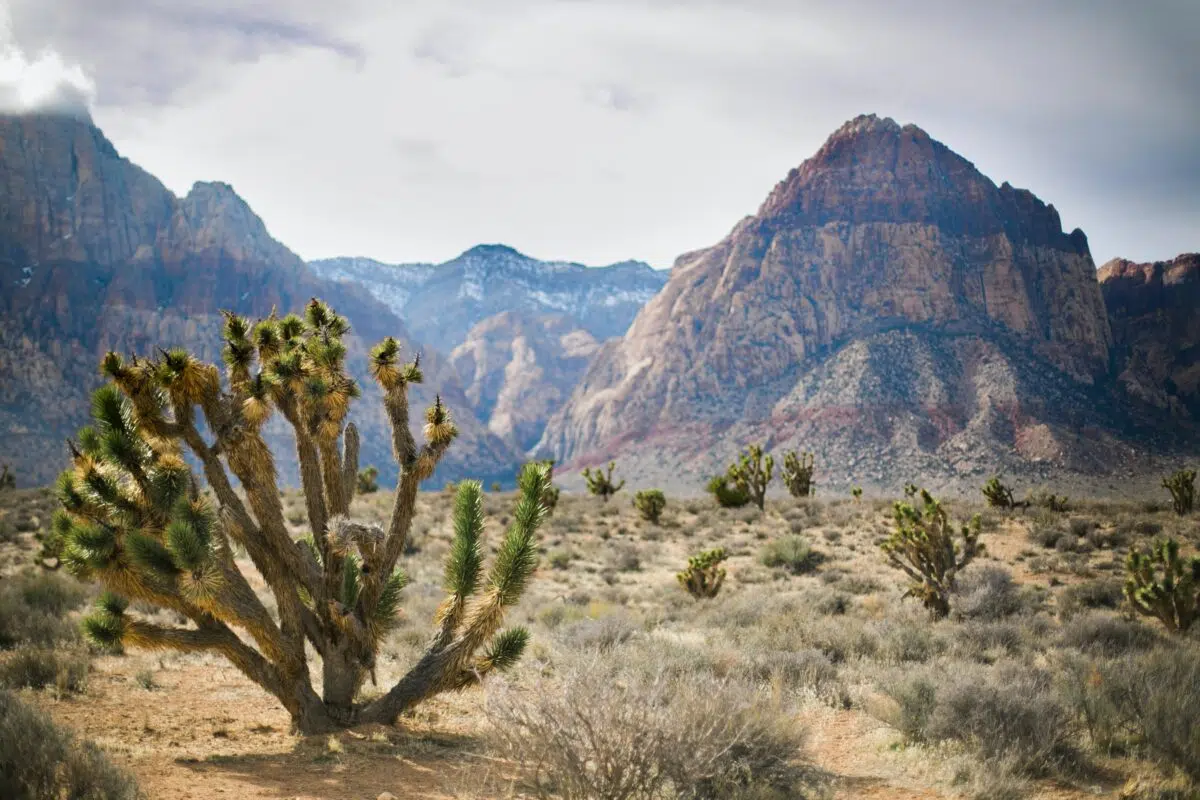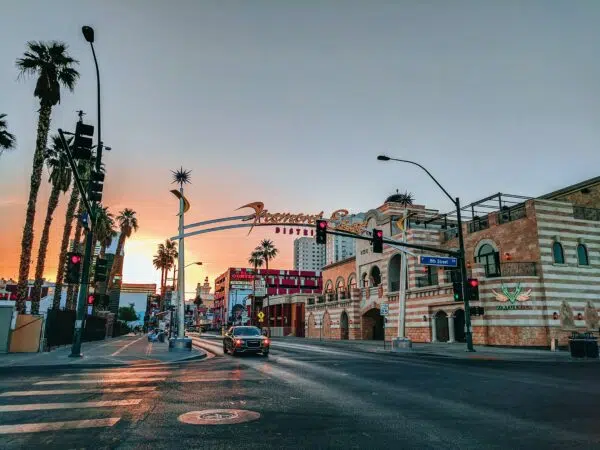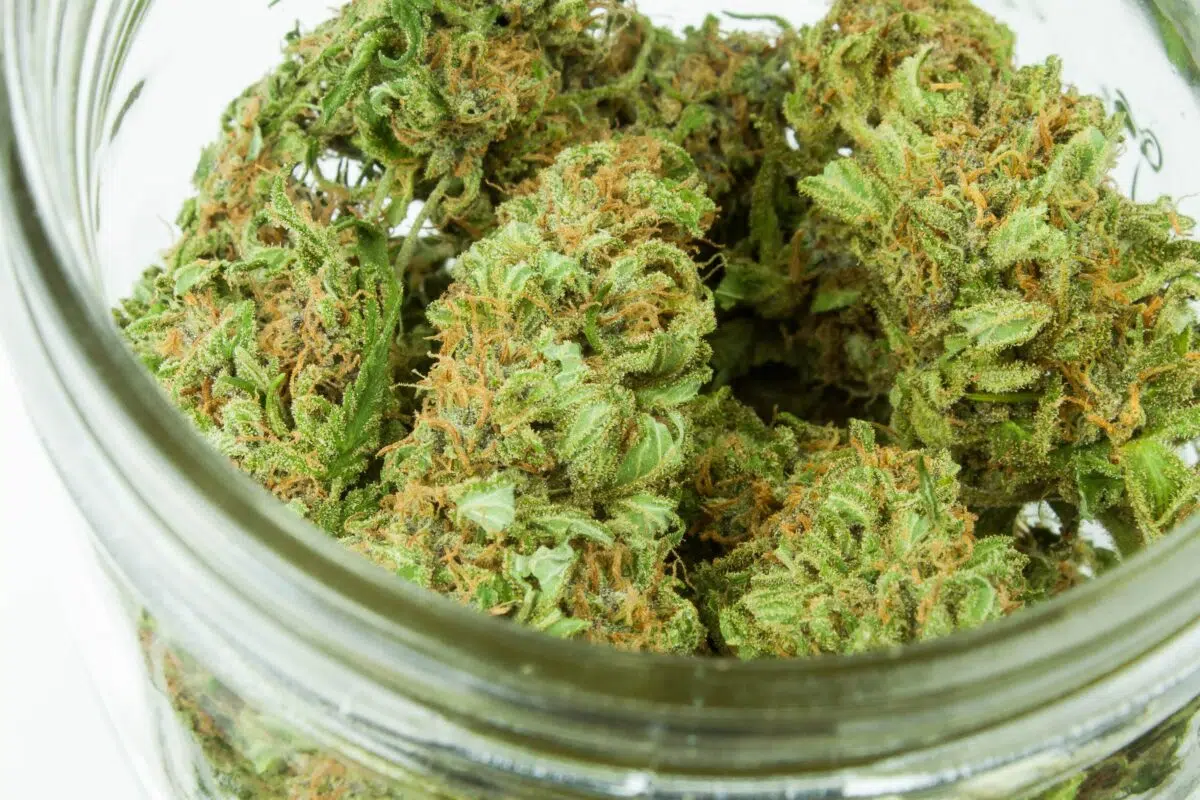
On June 30, 2017, Nevada opened up for recreational marijuana. Since then, marijuana businesses have scrambled to get their hands on licenses and real estate. And as of 2022, there were 99 recreational marijuana dispensary locations in the state.
Unsurprisingly, the Las Vegas area has the highest amount of cannabis retail businesses within its jurisdiction. Nevertheless, there are dispensaries spread throughout the Silver State.
In fact, many cannabis researchers and market watchers argue that Nevada is poised to add many more dispensary licenses. Preparing yourself for all the details and demands of a cannabis retail business today will help you achieve approval and success as a dispensary owner in the future. So here’s our guide detailing exactly how to open a dispensary in Nevada.
Dispensary Licensing In Nevada
To apply for a marijuana retail license you have to go through the Nevada Cannabis Compliance Board (CCB). Their website has paperwork that you can print, fill out, and send to their office. Along with this paperwork, you must provide detailed information and documents regarding a plan for your dispensary:
- Application & license fee
- Owner affiliation statement
- Owner agent cards provide
- Verification of medical certificate
- A copy of your medical certificate or provisional letter
- Zoning approval letter
- Distance requirements met
- Certificate of occupancy
- Landlord approval letter
- Registration with Nevada Secretary of State
- Local business license
- Pre-operating inspection
As of August 2022, there’s actually a freeze on issuing any further licenses for recreational dispensaries. Unfortunately, Nevada has (at least temporarily) capped the amount of marijuana retail locations they allow. On the CCB website it states the following:
The Department is not currently accepting applications for marijuana licenses or medical marijuana registration certificates. The Department will issue a 45-day notice prior to the opening of an application period.
But that won’t remain in place forever. There could easily be changes in the law, revoked licenses, or other factors that allow for openings. The CCB website does have an option to sign up for notifications for when the next open application period begins.
Preparing all of your paperwork so that you are ready to apply as soon as the opportunity arises is a important step in the process for entrepreneurs that hope to have a chance of getting approval to open a dispensary. And once that period begins again, send in the application, credentials, and fees as soon as possible.
Getting Approved For A Dispensary License
The Cannabis Control Board has a points-based rubric for awarding cannabis business licenses. The rubric has many different categories to grade how progressive and legitimate your plan appears. Here’s the grading system:
Grading system to get approval
Non-identified criteria (125 points):
Integrated plan for the care, quality, and safekeeping of marijuana from seed to sale – 40 points
Plan to staff, educate, and manage the proposed marijuana establishment on a daily basis – 30 points
Operating procedures for the electronic verification system and description of the cannabis inventory control system – 20 points
Adequacy of the size of the proposed cannabis establishment to serve the needs of persons who are authorized to engage in the use of cannabis – 20 points
Proposal demonstrating the likely impact of the establishment in the community in which it will be located and the manner in which the establishment would meet the needs of the persons who are authorized to use cannabis – 15 points
Identified criteria (125 points):
Proposed organizational structure and information concerning each owner, officer, and board member (including racial, ethnic, and gender diversity) – 60 points
Evidence of the amount of taxes paid or other beneficial financial contributions made to the state or its political subdivisions – 25 points
Financial plan and documentation – 30 points
Documentation from a financial institution that demonstrates the applicant has at least $250,000 in liquid assets and the source of those funds – 10 points
Licensing And Application Fees
Opening a dispensary can be rather expensive. Nevada’s licensing and application fees are fairly standard in comparison to the national average for recreational states. The initial application fee is a non-refundable $5,000. After that, you will have to pay a $20,000 license fee for your cannabis retail establishment.
Dispensary Business Plan
As noted in the previous section, a detailed business plan for your dispensary must be part of your application process. Besides being required by the state, a thorough business plan is a must when it comes to opening any retail enterprise.
What will you offer that’s different from your competitors? Finding out your niche, knowing your local clientele, and recognizing your competitors is crucial. This type of knowledge typically requires market research focusing on your industry and location. Merchandising and branding based off of this market research can help your dispensary succeed in the long run. Include details about your supply chain so that you can consistently stock your store with quality products.
Be detailed and honest about all real and potential costs that you will run into when opening and operating your business. This includes an exhaustive budget with licensing costs, construction, real estate, risk management, acquiring inventory, security, salaries, and more. Remember to build into your budget the fact that Nevada has strict rules and regulations for security, which we will get to later.
Also, opening a dispensary requires significant capital. Your business plan should provide information regarding financing. This includes where you plan on acquiring loans and how you plan on paying them back.

Real Estate
Out of 17 counties in Nevada, 4 have passed laws allowing for recreational marijuana businesses within their jurisdictions. These four counties are Clark, Washoe, Nye, and Storey. Unsurprisingly, these counties account for the two biggest metropolitan areas of Las Vegas (Clark) and Reno (Washoe).
Finding a “green zone” in which you can open a dispensary is no easy task. The state, as well as counties, and local municipalities have limits on what locations are allowed for marijuana businesses. For example, Nevada’s state zoning statute for “adult-use” cannabis businesses states that dispensaries must be more than 1,500 feet from a casino, 1,000 feet from a school, and 300 feet from a community facility. Keep all of these rules, as well as more local rules, in mind when searching for a brick and mortar location for your cannabis retail business.
Security Regulations
Each state has their own requirements and regulations for dispensary security and surveillance. According to Nevada Administrative code, cannabis retail locations must have take following measures:
To prevent unauthorized access to cannabis at a cannabis establishment, the cannabis establishment must have:
One single secure entrance of the physical building;
No visible cannabis or cannabis products from outside the establishment.
Security equipment to deter and prevent unauthorized entrance into limited access areas
…Video cameras with a recording resolution of at least 1920 x 1080…at a rate of at least 15 frames per second which provide coverage of all entrances and exits of the building, any room or area that holds a vault and any point-of sale location, which record 24 hours per day
…at least one employee of the cannabis establishment or the employees of
any third party who provides security to the cannabis establishment has completed or will complete
within three months of being hired, … {with}:
…Training in theft prevention or a related subject…emergency response or a related subject in the appropriate use of force or a related subject that covers when the use of force is and is not necessary; in the use and administration of first aid, including cardiopulmonary resuscitation.. in the protection of a crime scene or a related subject…in the control of access to protected areas of a cannabis establishment or a related subject…
Maintaining security compliance is imperative in order to keep your business from any closures, and safety for your products, employees, and cash. There are a number of third party security companies you can call to see what packages they offer for personnel, camera monitoring, and more. Check out Pro-Vigil, or Nevada Security Services to name a few. Carefully vet whoever you choose to hire to make sure that they have experience working with marijuana-related businesses.

How To Open Up A Dispensary In Nevada: Getting A Loan
While some local banks and credit unions allow dispensaries to deposit cash in their vaults, they will not offer financing. Hence, it’s necessary to reach out to alternative lending options to get the necessary capital to open your business. Here, you have two main options.
Private Equity And Venture Capital
The first option is to look for “angel” investors or venture capital firms to loan you cash up front. The biggest advantage of working with these types of investors is that they often have industry connections and business knowledge that can provide significant assistance to you in your enterprise. On the other hand, you will have to give up substantial equity in your business once you bring them on board.
Cannabis-Specific Financial Institutions
The other option is looking for a cannabis industry lending company. There are more and more of these types of financiers popping up all over the country. Check out Fund Canna, which offers equipment financing, working capital loans, lines of credit, and dispensary loans, and operate in the state of Nevada. Another similar institution is Diamond Business Loans, which offers real estate and small business financing in the cannabis sector.
Staffing Your Dispensary
Cannabis is no different than most other retail businesses: good workers are crucial. Remember that your budtenders are going to be doing nearly all of the interactions with your clientele. Thus, hiring good staff, training thoroughly, treating workers well, and paying competitive rates is a must.
Budtenders in Nevada make about $13-$16 dollars per hour (plus tips) depending on experience. Hiring a few that have been in the industry for significant time can help ensure a smooth workflow.
Managers And Supervisors
In addition, if you’re planning on running a medium to large-scale operation, investing in managerial type employees will help maintain optimal efficiency, compliance, and profitability. Consider hiring a floor manager to watch over the dispensary and troubleshoot any problems budtenders may run into.
A compliance officer to oversee all security, track and trace monitoring, and any additional regulatory requirements will ensure that you don’t get fined or shut down. While these employees will require higher salaries, they have the potential to save you money and headaches in the long run.
Acquiring Inventory
Because of the limited amount of producer licenses that Nevada has allowed to be issued, the state has a higher wholesale cost for cannabis flower. As of March 2022, the average price for a pound of indoor cannabis flower in NV was $2,000, which is about 20% more than the national average.
Nonetheless, by the time dispensary licenses application period opens up, it is likely that cultivator licenses will increase at the same time. The increase in product will inevitably drive down some of the cannabis prices. For aspiring dispensary owners, this evolving and somewhat unpredictable process is worth keeping an eye on. The best way to plan in advance is to establish relationships with wholesale suppliers prior to applying for your license.

Vertical Consolidation In Nevada
Some cannabis business leaders argue that one of the more solid ways of ensuring viability and longevity in the industry is through vertical consolidation. This means owning more than one type of cannabis license and enterprise so that you can supply your own retail business with your own product.
Nevada does allow this type of integration. While consolidation can help greatly with keeping your inventory steady and affordable, it requires much more capital to get started. Therefore, it can be a great option for some larger-scale businesses and entrepreneurs who have the funds to make it happen and hope to establish higher profit margins down the road.
Does Nevada Have A Social Equity Program ?
To date, Nevada does not have a social equity program for dispensary entrepreneurs. However, when the state issued licenses for on site consumption, they required that at least half of the licenses be issued to what they deemed as social equity candidates. In fact, for the candidates that were approved for social equity on-site consumption licenses, the state reduced fees by 75%.
These include people from impoverished and over incarcerated neighborhoods, as well as individuals formerly imprisoned for marijuana offenses. There will likely be further extensions of these requirements for the next round of dispensary licensing. Thus, if you are planning on opening a dispensary in NV in the future and think you will qualify for social equity, this could be a factor that greatly increases your chances of obtaining a license, and at a reduced cost to boot.
Make Your Dispensary Stand Out
In such a competitive industry, making your dispensary stand out is vital. Make sure to use all available avenues of marketing to reach your audience. This includes utilizing social media platforms like Instagram to generate followers to help land on your eCommerce page. It also means working with loyalt, CRM, and other cannabis technology companies.
KORONA POS integrates with rewards program and marketing platform springbig to deliver targeted text message and email promotions. Use your customer sales data right from your point of sale to send insight-driven marketing content to the right clientele at the right time.
Nevada Track-And-Trace: Metrc Compliance
In 2017, Metrc signed a contract with the Nevada CCB for their track and trace program. Metrc is a Florida-based technology company that monitors all marijuana products sold in the state from seed-to-sale. They now have exclusive contracts with 19 state governments.
As far as dispensary owners are concerned, your cannabis retail shop will be required to use Metrc to report on all of your inventory and sales. No exceptions! As an operator, you will also be required to partake in a virtual training program before you are allowed to start selling any cannabis products. In fact, all of your staff will have to get certified using Metrc prior to starting their first shift. Luckily, Metrc offers all of this training right off of their website. KORONA POS also integrates with Metrc, offering a seamless way to manage full state compliance through your retail POS.
Invest In A Powerful POS That Integrates With Metrc
Using a powerful dispensary POS that integrates with Metrc will help your dispensary operate with efficiency and accuracy. With KORONA POS’s Metrc integration, you can automatically push all of your sales and inventory counts directly onto the track-and-trace database without having to manually input anything. This saves you time, labor hours, and headaches for non-compliance and missing stock.
KORONA POS offers robust dispensary point of sale. We are integration-ready, with cloud-based software at the best price point available. In addition, we have a dedicated, hands-on customer support team that is always available to answer any questions. Give us a call today to learn more about our product, or to schedule a demo!
FAQs: Opening A Dispensary In Nevada
It costs at least hundreds of thousands, and potentially up to millions of dollars to open a dispensary in Nevada. The initial application costs $5,000, plus a $20,000 annual license fee. Add to that real estate, staffing, inventory costs, and more. Finally, Nevada has a minimum $250,000 liquid asset capitalization requirement.
To open a dispensary in Las Vegas you will first need to complete all of the state licensing application procedures. This includes acquiring approval for real estate in Las Vegas following all of their municipal guidelines. In addition, you must obtain a special use permit from the city planning department.
As of 08/09/2022 there are 55 recreational dispensaries in Las Vegas. Unsurprisingly it has more cannabis retail locations than any other part of the state (55 out of 99). There are also 8 recreational dispensaries in North Las Vegas, and 5 in Henderson.
There are 99 total dispensaries licensed in Nevada as of August 2022. The state has put a stop on issuing any new licenses for the time being. However, most cannabis business leaders predict that sometime in the near future, the Nevada’s Cannabis Compliance Board will initiate a new application period.













